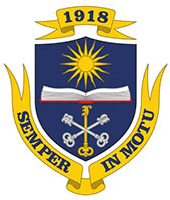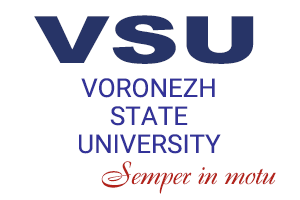On 14 and 15 February, Voronezh State University hosted the 24th international conference “Informatics: Problems, methodology, and technologies” named after E.K. Algazinov, dedicated to the 25th anniversary of the Faculty of Computer Sciences of VSU.
The event was held in a mixed format (in person and online). Its plenary meeting and technological session was broadcast on the Internet.
Professor Dmitry Kostin, VSU Vice-Rector for Research, Innovations, and Digitising, addressed the audience with words of welcome. He talked about the wide geography of the participants and the high relevance of the topics discussed during the conference.
“Such events are necessary for the development of IT industry, they help to create a favourable environment for specialists, to make them stay in Voronezh and develop IT in the region,” said Dmitry Kostin.
Alexander Krylovetsky, Dean of the Faculty of Computer Sciences, also addressed the participants and guests of the event. He said that the unique teaching staff and the interaction with IT business allows the faculty to provide a high level of training of specialists at the faculty.
The conference was attended by more than two hundred leading scientists and specialists from universities, educational institutions, and schools, specialists from various companies and organisations of the Voronezh Region, other cities of Russia, and neighbouring countries.
During the plenary session, Associate Professor Mikhail Karjakin, Director of the Vorovich Institute of Mathematics, Mechanics, and Computer Sciences of the Southern Federal University, Sofia Egorova, a postgraduate student from the Southern Federal University, and Bogdan Padalko, a graduate student from the Southern Federal University, gave a report dedicated to “Computer automation of the analysis of forward and inverse problems”.
Professor Mikhail Matveev, Head of the Department of Information Technologies in Management of the Faculty of Computer Sciences of VSU, Associate Professor Natalia Aleinikova from the Department of Information Technologies in Management of the Faculty of Computer Sciences of VSU, Associate Professor Andrey Gromkovsky from the Department of Information Technologies in Management of the Faculty of Computer Sciences of VSU, and Vladislav Korotkov, Senior Lecturer at the Department of Information Technologies in Management of the Faculty of Computer Sciences of VSU, gave a report “Decision Making in Organisational Bipartite Matching Systems”.
Arutun Avetisyan, Full Member of the Russian Academy of Sciences, Director of the Institute for System Programming of the Russian Academy of Sciences, talked about the “Technology of creating trusted systems (including artificial intelligence systems)”.
Professor Alexander Zatsarinny, Deputy Director of the Federal Research Centre “Informatics and Management” of the Russian Academy of Sciences, presented the report “On some significant achievements of scientists of the Russian Academy of Sciences in the field of Information Technology”.
Professor Alexander Loboda from the Department of Digital Technologies of the Faculty of Computer Sciences of VSU gave a report “Classifications of homogeneous manifolds: Computer algorithms and symbolic calculations”.
Ksenia Zavalina, product manager at Fittin, gave a presentation of a mobile application for students and lecturers of the Faculty of Computer Sciences.
The technological section consisted of reports by: Nikita Bukhtoyarov and Sofia Shchedrina, product managers at Fittin; Polina Agibalova, resource manager; Natalia Muratova, leading Frontend developer at Relex; Denis Kolupaev, Head of the Commercial IT Products Development at Severstal; Denis Rybas, software engineer from DSR Corporation; Sergey Budnikov, chief researcher at the Federal Service for Technical and Export Control of Russia; and Elena Menshova, corporate coach at the Central Black Earth Branch of PAO Sberbank.
On 15 February, the conference participants worked in the following sections: methods and technologies of software systems development, computer modelling in fundamental and applied research, information security and processing technologies, information systems and databases, applied modelling and e-business, intelligent information systems, computer linguistics, data retrieval technologies, supercomputer computing and BigData, quantum information systems, and CAD and digital technologies.
On 14–15 February, the 15th workshop “Informatics in Education” was held alongside with the main conference. The programme of the workshop consisted of the following sections: methods of teaching informatics, Final State Exam in Informatics, ICT-based project-based learning technology, computer modelling in education, e-learning and distance learning technologies, corporate training centres and educational programmes: problems and prospects, and transition to professional standards: requirements for IT competencies.










